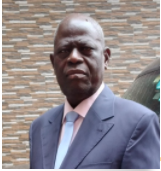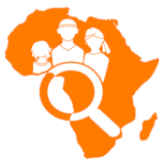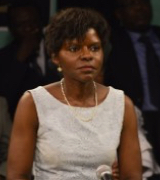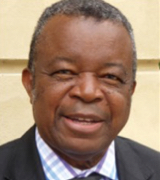Democratic Republic of the Congo
 Prof. Félicein Munday Mulopo
Prof. Félicein Munday Mulopo
Co-investigator and Steering Committee Member
University of Kinshasa (Kinshasa University)
Email: feli1munday@yahoo.fr
Biography: Professor Félicient Munday Mulopo is an expert on ethics and bioethics (behavioural and medical research ethics; clinical and public health ethics), based out of the Faculté des lettres de l'Université de Kinshasa (Faculty of Arts, University of Kinshasa), where he serves as Director of the Faculty of Letters' Center for Applied Health Ethics (CEASA), and of the National health ethics committee. He also serves as president of the National Health Ethics Committee of the Ministry of Health of the Democratic Republic of Congo (National health ethics committee to the Ministry of Health of the DR Congo). In addition, Professor Munday is vice president of the WHO Regional Office for Africa's African Vaccine Regulatory Forum (AVAREF).
Prof. Jean-Jacques Muyembe
Co-investigator
University of Kinshasa (Kinshasa University), National Biomedical Research Institute
Email: jjmuyembet@gmail.com
Biography: Following the Kikwit (DRC) epidemic in 1995, Professor Muyembe began researching the Ebola virus. With his team, he began by describing the clinical manifestations of the disease, based on observations made in two different hospitals, as well as the late complications: epidemiological (amplifying roles of hospitals and funeral rites), virological (viral particles in contact with the skin, in the lungs, etc.) and therapeutic aspects - by trying serotherapy for the first time. He succeeded in developing specific Ebola control measures, which have since been used in the management of epidemics in Africa.
These measures allow:
- The recognition of the disease thanks to a definition adapted to the rural context,
- Breaking the chain of transmission of the virus in the community by isolating patients in treatment centers,
- Contact tracing for 21 days,
- Plan to put in place the necessary hygiene measures for burials and to sensitize the communities.
Jean-Jacques Muyembe also experimented with transfusion of the blood of convalescent Ebola patients on 8 patients, making it possible to treat 7 of them and thus constituting the beginnings of an anti-Ebola serotherapy currently in development.
 Karhemere Stomy
Karhemere Stomy
DRC Implementation Committee Member
National Biomedical Research Institute
Email:
Biography:
 Norbert Mabanza
Norbert Mabanza
DRC Implementation Committee Member
Association des Réscapés de l'Epidémie Virale d'Ebola de Kikwit AREVEK (Kikwit Ebola survivors’ association)
Email:
Biography:
 Popaul Punza
Popaul Punza
DRC Implementation Committee Member
Réseau National de Télévision (National television network)
Email:
Biography:
 Dr. Francine Ntoumi
Dr. Francine Ntoumi
Steering Committee Member
Pan-African Network for Rapid Research, Response, Relief and Preparedness for Infectious Diseases Epidemics (Pandora-ID-Net)
Email: fntoumi@fcrm-congo.com
Biography: Francine Ntoumi is Founder, Chair and Executive Director of the Congolese Foundation for Medical Research, Republic of Congo, lecturer in Immunology at the University Marien Ngouabi, Republic of Congo, and Research Group Leader at the University of Tübingen, Germany. She is a member of several scientific committees and international scientific networks in Africa and Europe and serves as a reviewer for a number of leading scientific journals. Her main area of research is malaria, and throughout her career she has trained African scientists of various nationalities in disciplines such as immunology and molecular epidemiology.
Since January 2009, Prof Ntoumi has been involved in developing health research capacities in Central Africa through the Central Africa Network on Tuberculosis, HIV/AIDS and Malaria, (CANTAM). Between 2007 and 2010, she served as the first African leader of the Multilateral Initiative on Malaria (MIM), and in 2014 she was appointed to the board of the Global Health Scientific Advisory Board of the Bill & Melinda Gates Foundation and in 2015 to the Board of Directors of the International Aids Vaccine Initiative. In 2012, she received the African Union Kwame Nkrumah Regional Scientific Award for women and was also laureate of the RICE prize (Reseau International des Congolais de l’Etranger). She received the Georg Forster Prize, Germany and the Christophe Mérieux Prize , France in 2015 and 2016, respectively.


